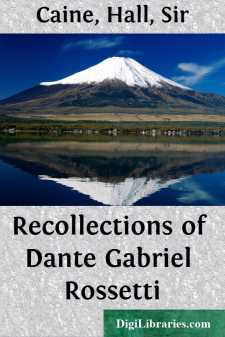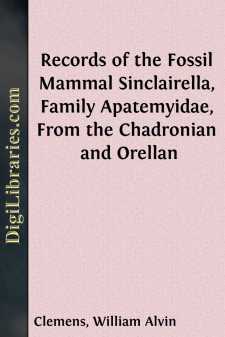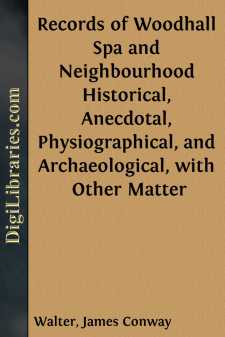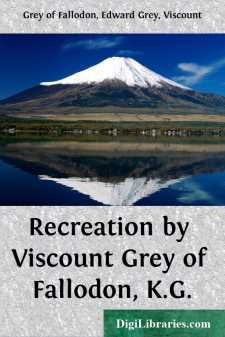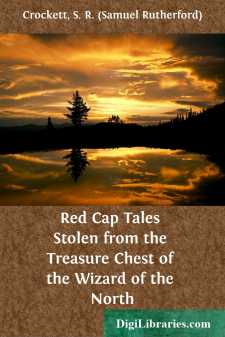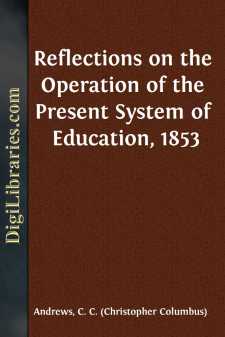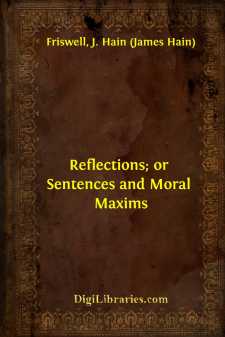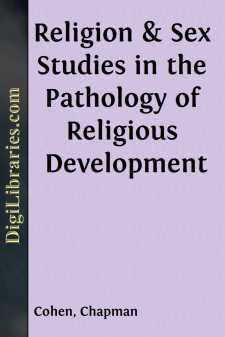Non-Classifiable
- Non-Classifiable 1768
Non-Classifiable Books
Sort by:
by:
Alfred Hopkinson
CHAPTER I ASPIRATIONS AND FOUNDATIONS I think I see, as it were above the hill-tops of time, the glimmerings of the dawn of a better and a nobler day for the country and the people that I love so well.—JOHN BRIGHT. The suggestion has been made to me that in these days of rapid development, when proposals, so bewildering in their extent, for change and for reconstruction are being made, it would be...
more...
by:
Hall Caine
One day towards the close of 1881 Rossetti, who was then very ill, said to me: "How well I remember the beginning of our correspondence, and how little did I think it would lead to such relations between us as have ensued! I was at the time very solitary and depressed from various causes, and the letters of so young and ardent a well-wisher, though unknown to me personally, brought solace."...
more...
by:
Fanny Kemble
CHAPTER I. A few years ago I received from a friend to whom they had been addressed a collection of my own letters, written during a period of forty years, and amounting to thousands—a history of my life. The passion for universal history (i.e. any and every body's story) nowadays seems to render any thing in the shape of personal recollections good enough to be printed and read; and as the...
more...
Description and comments.—P4 of KU no. 11210 has a large posterolingual cusp separated from the main cusp by a distinct groove, which deepens posteriorly. The posterolingual cusp is supported by the broad posterior root. P4 of the type specimen of Sinclairella dakotensis is described (Jepsen, 1934, p. 392) as having an oval outline at the base of the crown, and a small, posterolingual cusp. A chip of...
more...
CHAPTER I. THE HISTORY OF THE WELL. It has been remarked that the discovery of many of our medicinal springs has been due to some romantic incident, or, in other cases, to some occurrence partaking almost of the ludicrous. At the famed Carlsbad, for instance, a princely hunter pursues his stag into the lake where it has sought refuge, whereupon the unusual cries of his hounds, too eagerly breasting...
more...
It is sometimes said that this is a pleasure-seeking age. Whether it be a pleasure-seeking age or not, I doubt whether it is a pleasure-finding age. We are supposed to have great advantages in many ways over our predecessors. There is, on the whole, less poverty and more wealth. There are supposed to be more opportunities for enjoyment: there are moving pictures, motor-cars, and many other things which...
more...
CERTAIN SMALL PHARAOHS THAT KNEW NOT JOSEPH It was all Sweetheart's fault, and this is how it came about. She and I were at Dryburgh Abbey, sitting quietly on a rustic seat, and looking toward the aisle in which slept the Great Dead. The long expected had happened, and we had made pilgrimage to our Mecca. Yet, in spite of the still beauty of the June day, I could see that a shadow lay upon our...
more...
The duty of bringing up the young in the way of usefulness has ever been acknowledged as of utmost importance to the well-being and safety of a State. So imperative was this obligation considered by Solon, the Athenian lawgiver, that he excused children from maintaining their parents, when old and feeble, if they had neglected to qualify them for some useful art or profession. Although this principle...
more...
The description of the "ancien regime" in France, "a despotism tempered by epigrams," like most epigrammatic sentences, contains some truth, with much fiction. The society of the last half of the seventeenth, and the whole of the eighteenth centuries, was doubtless greatly influenced by the precise and terse mode in which the popular writers of that date expressed their thoughts. To a...
more...
by:
Chapman Cohen
PREFACE In spite of all that has been done in the way of applying scientific principles to religious ideas, there is much that yet remains to be accomplished. Generally speaking science has only dealt with the subject of religion in its more normal and more regularised forms. The last half-century has produced many elaborate and fruitful studies of the origin of religious ideas, while comparative...
more...



